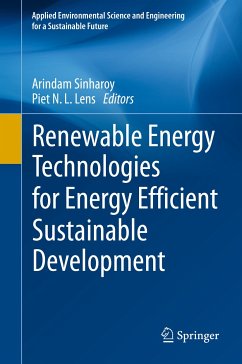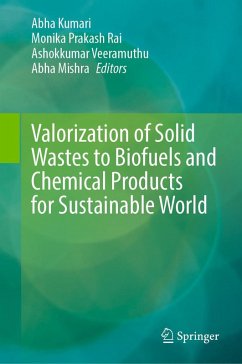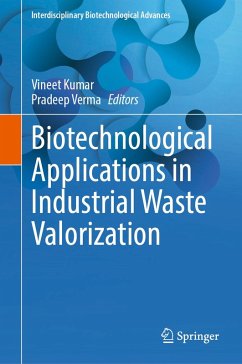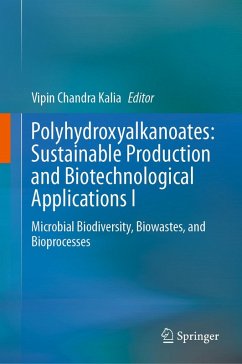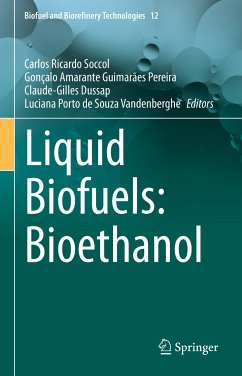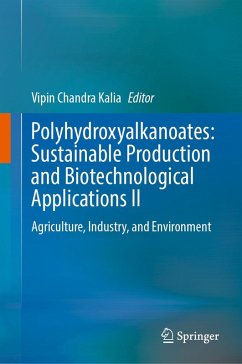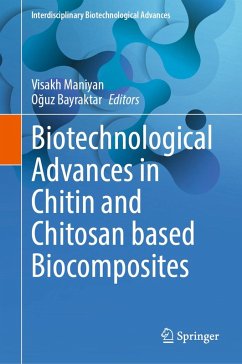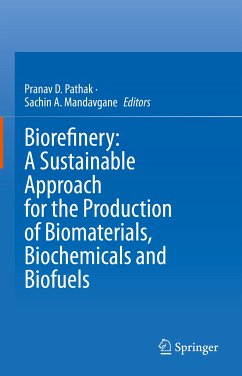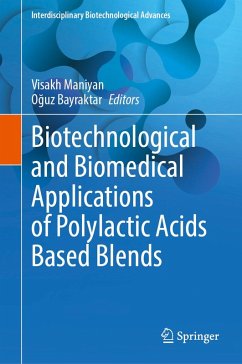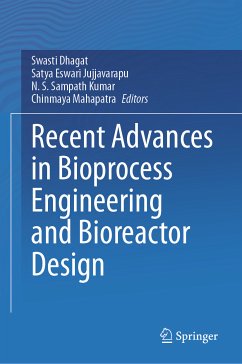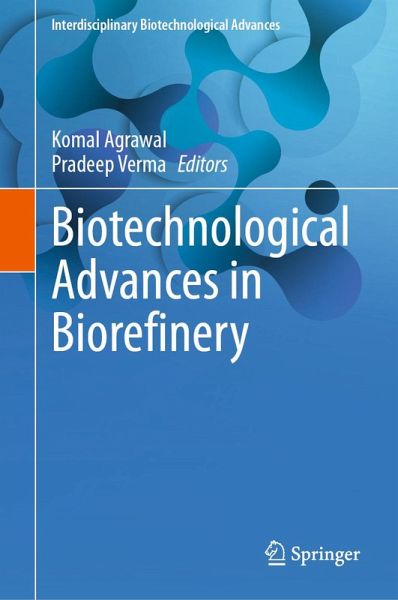
Biotechnological Advances in Biorefinery (eBook, PDF)
Versandkostenfrei!
Sofort per Download lieferbar
176,95 €
inkl. MwSt.
Weitere Ausgaben:

PAYBACK Punkte
88 °P sammeln!
This book is unique as it will cover the latest technological advancements in the field of biorefinery and how it is a major futuristic component of global biofuel research. Initially, the role of bio-based waste materials, microorganisms, and their bioactive metabolites in biorefinery will be focused. Further, recent advances and emerging topics that are related to industrially important products such as biofuels, hydrogen production will also be elaborated. The book addresses the lack of understanding of recent technological advancement such as life cycle assessment (LCA) and techno-economic...
This book is unique as it will cover the latest technological advancements in the field of biorefinery and how it is a major futuristic component of global biofuel research. Initially, the role of bio-based waste materials, microorganisms, and their bioactive metabolites in biorefinery will be focused. Further, recent advances and emerging topics that are related to industrially important products such as biofuels, hydrogen production will also be elaborated. The book addresses the lack of understanding of recent technological advancement such as life cycle assessment (LCA) and techno-economic assessment (TEA) as well. The systems for biorefineries demand a methodical approach to identifying effects and evaluating their long-term viability. Thus, a futuristic paradigm focusing on in silico studies, will also be incorporated, enabling us to understand the developments and impacts of bio-based materials towards a circular and sustainable economy. Additionally the proposed book will also discuss various strategies such as the analysis of cost-effectiveness, nanotechnology, value sensitive design (VSD) and also emphasize the economic, technical, and environmental aspects that affect their production as well as the future perspective in terms of the market scenario.
Thus, the book will provide cumulative information on various dimensions of biorefinery and its role as a major bio-economic industry of the future for researchers, industrialists, entrepreneurs, career starters, and policymakers. The shift towards a bioeconomy not only promises innovative solutions to pressing global challenges but also opens up new avenues for various industries and policymakers. Thus, biorefinery is regarded as a crucial aspect of biobased economy ultimately leading the path towards sustainability.
Thus, the book will provide cumulative information on various dimensions of biorefinery and its role as a major bio-economic industry of the future for researchers, industrialists, entrepreneurs, career starters, and policymakers. The shift towards a bioeconomy not only promises innovative solutions to pressing global challenges but also opens up new avenues for various industries and policymakers. Thus, biorefinery is regarded as a crucial aspect of biobased economy ultimately leading the path towards sustainability.
Dieser Download kann aus rechtlichen Gründen nur mit Rechnungsadresse in A, B, BG, CY, CZ, D, DK, EW, E, FIN, F, GR, HR, H, IRL, I, LT, L, LR, M, NL, PL, P, R, S, SLO, SK ausgeliefert werden.



